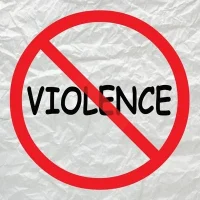Deadline: 19-Oct-22
The European Commission (EC) is inviting proposals for the EIC Pathfinder Challenge: Carbon dioxide and Nitrogen management and valorisation.
Aims
This EIC Pathfinder Challenge aims at developing novel processes and technologies to enable CO2 and N management/valorisation and in turn to reduce:
- greenhouse gas (GHG) emissions,
- nitrogen losses (mainly due to agricultural practices), so minimizing impact on soil and water,
- carbon losses from the energy, industrial, agricultural, and livestock sectors.
Objective: The proposals, through non-critical raw materials (CRM)-based, systems integrated, life cycle and circular thinking driven approaches, should develop a proof of concept (PoC) or lab-scale validated innovative technology that, will manage and valorise CO2, N, or both at the same time into value-added net zero commodities, chemicals, fuels, or energy vectors. Such technology should produce added-value products optimising input/output energy balances and achieving a carbon negative or net zero process promoting sustainable business models. Besides, the different steps of the CO2/N management and valorisation process could be designed to achieve integration at system or process level, to maximize sector coupling of energy systems such as converting renewable electricity into e-fuels and materials (e.g. power to X).
These technologies could also increase cross sector coupling of energy systems, when renewable energy is required to capture, convert and use carbon and nitrogen streams into added value products.
This Challenge focuses on new biological, chemical, physical routes that integrate the capture and/or recovery of CO2 and N species, storage and their conversion into value-added products, and/or net zero commodities, chemicals, fuels and energy vectors. The processes should focus on the use of renewable energy as input to develop carbon negative or net zero systems. Reaching these objectives requires multidisciplinary competencies and cross-sectorial approaches, with a strong focus on circularity and whole life analysis. The research could address in an integrated manner environmental, industrial, agricultural, socio-economic and logistic issues.
Funding Information
Up to Euro 167.00 Million available.
Expected Outcomes and Impacts
This Challenge aims at developing:
- a net zero carbon process involving conversion of CO2 from various sources and streams into renewable fuels or net zero materials, using renewable energy as input. Such technology should involve CO2 capture/conversion (directly from air or from flue gases streams, and through photosynthetic, biological, biophysical, or chemical processes), storage (e.g. through chemical, electrochemical, biogenic processes), and further valorisation (e.g. feedstock for chemical industry, high energy density fuels, energy carriers or other carbon neutral compounds for industrial or agricultural applications). The CO2 valorisation processes should be based on renewable energy and adopt technologies such as co-electrolysis of CO2 and water, catalytic reduction of CO2, or photoelectrochemical CO2 conversion etc.;
- N integrated management cycle (nitrogen circular economy) to avoid or significantly reduce N release (e.g. from combustion, fertilizer, livestock, and wastewater) in conjunction with the conversion of N-compounds to inert N2, or N-compounds recovery (e.g. using chemical, electrochemical, physical or biological systems), recycle and reuse as feedstock for added-value products or for biological fixation (e.g. into agriculture, as ammonia, as renewable fuels and energy vectors, as liquid hydrogen carriers).
Eligibility Criteria
- Any legal entity, regardless of its place of establishment, including legal entities from non-associated third countries or international organisation (including international European research organisations) is eligible to participate (whether it is eligible for funding or not), provided that the conditions laid down in the Rules for Participation have been met together with any other conditions laid down in the specific call or topic.
- In order to be eligible for funding, the applicants must be established in one of the eligible countries, i.e., Member States (including their outmost regions and overseas countries and territories (OCTs)), countries associated to Horizon Europe and low- and middle-income third countries.
- In order to be eligible for funding, the applicants must be established in one of the eligible countries, i.e.:
- Member States of the European Union (including overseas countries and
- territories (OCTs))
- Eligible non-EU countries:
- countries associated to Horizon Europe
- Low- and middle-income countries.
For more information, visit https://bit.ly/3xyroLq









































